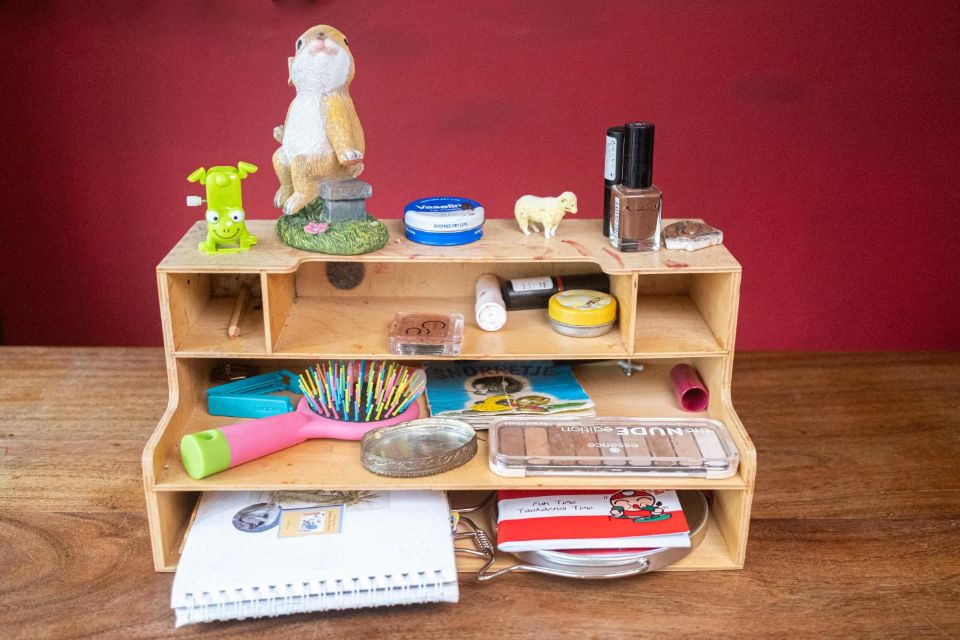Progress
“This is Kaya’s cabinet”, says Ans, “she feels right at home here.” Although at first all the old toys and old children’s books from Ans and Dick’s three sons were brought down from the attic, it seems Kaya prefers to develop her own interests. The cabinet is filled with make-up, the bookcase is decked out with the latest picture books, and above all, there are arts and crafts materials scattered on and around the dinner table for her, but also for Ans. “We even have a membership for the Bobo now.”
Whenever Haide and Fardin, her parents needed to work, Kaya had a place at their home. They moved back to Leiden from Delfzijl, but still have trouble finding a proper job. Their diplomas and prior education are not valid here and the fact that they do not speak the language fluently is a great hurdle. “It is very beneficial to raise a child here, because then you are forced to participate in Dutch society. It means you have to go to the consultation bureau and you have to look for childcare at some point. Kaya is 4 years old now. She speaks Dutch fluently, and even refuses to speak Koerdish sometimes. Her parents learn a lot from her.”
Haide picked up the language quite quickly, and after her exam to become a Dutch citizen, she received a scholarship to continue her studies. Work in a laboratory, chemistry, fysiotherapy, nursing: her interests are broad, but the standards of college were too demanding for Haide to keep up. A sudden financial setback grinded Haide’s future plans to a halt: Haide and Fardin were, as many others, also affected by surcharges and benefits related to childcare that suddenly needed to be paid back to the Belastingdienst (Tax Authority). The debt is relatively low, but for a family without income, the dream to study further was crushed. Haide sits at Ans’ dinner table weekend after weekend; they practice her Dutch, they catch up about everything and nothing, but most of all they search for jobs. Meanwhile, Kaya has already run outside to clatter the mailboxes at ‘her friends’ houses.
Saeed was transferred so far away that he could only stay for the weekend. “Suddenly Dick and I gained a little brother, and the boys an older brother.” Saeed also has trouble finding his way in the worklife. In the Netherlands a job has requirements: skills are a necessity, and having diplomas offer possibilities.
“They often think that I found it really easy to find a job, because after all I am Dutch. I was lucky that Dick and I have great jobs, but here it is important for an employer to know what her/his employees are capable of. That is where ‘competencies’ come in. That is difficult! Saeed just wants to start. He asked me why he couldn't become a hairdresser, because in Iran he used to cut people’s hair. He even cuts my boys’ hair. But you need a diploma to be a hairdresser, at least I think so!
Sometimes that leads to misunderstandings. He would rather not apply for a job as gardener, because he would have to work outside in winter. I think to myself: it is only a temporary job, you have to do something. Or now in this ‘Covid-year’, work on your Dutch. Still, of course I can think that way, but I would do nothing rather than work on my notebooks (step 2). That doesn’t mean that he would do the same. To me this is very informative. You can’t force your own ideas about society on someone else. You can’t just think ‘oh, he will do something exactly the way I would do it’.”
